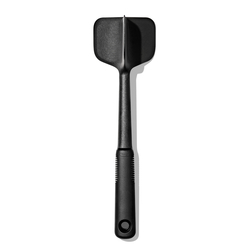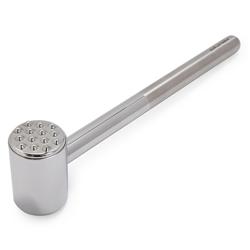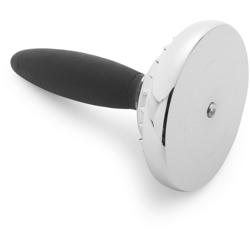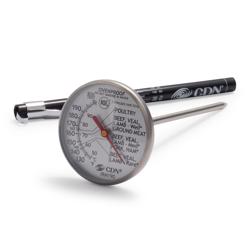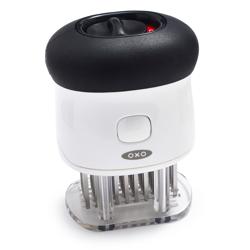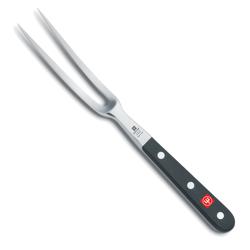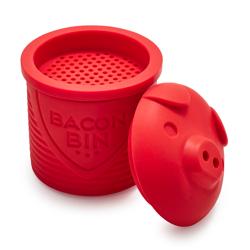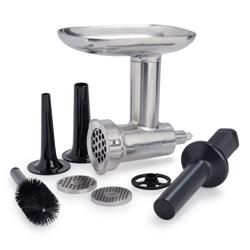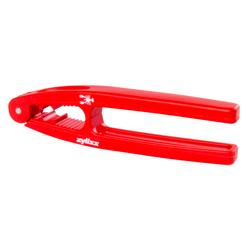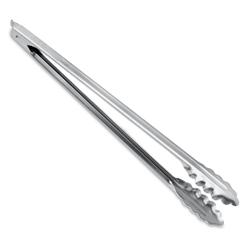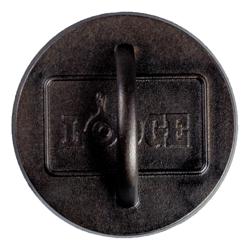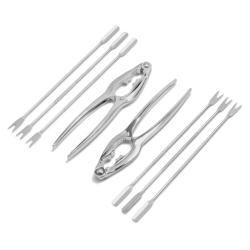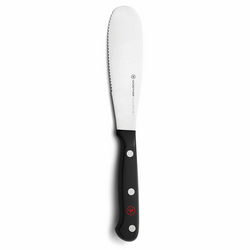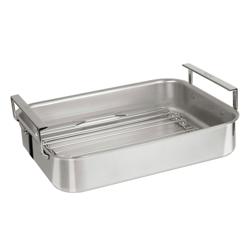-
(15)
A black silicone ground meat tool that easily chops and separates meat for even browning.
Pros: handy, effectiveness, easy to use
-
(13)
A silver stainless steel meat pounder with a beveled and flat side for versatile use.
Pros: effectiveness, sturdy, easy to clean
-
(10)
A durable silver meat pounder with a removable disk for flattening and tenderizing meats.
Pros: easy to clean, effective, easy to use
-
(19)
A silver stainless steel cooking thermometer with a large dial that reads instant temperatures for various meats.
Pros: great product, good product, usefulness
-
(3)
A handy meat tenderizer with 50 razor-sharp blades for turning tough cuts into tender meals.
Pros: easy to use, effective tenderizing, well-made
-
(4)
A precision-forged, high-carbon steel meat fork with a triple-riveted, full-tang handle, perfect for serving meat and fish.
Pros: durability, long-term use, works great
-
A tan stainless steel knife designed for precise meat and fish preparation with minimal drag.
Meat Tool
A meat tool is a kitchen utensil used to tenderize, flatten, or cut meat. These tools are typically made of metal and feature a handle for easy gripping. They are available in a variety of shapes and sizes, making them suitable for different tasks. Here are some great options.
Meat Tool
FAQ List
The best type of meat thermometer to use depends on your personal preference and the type of cooking you'll be doing. Some popular options include instant-read thermometers, probe thermometers, and infrared thermometers.
The best way to clean your meat tools depends on the type of tool you're using. In general, most meat tools can be cleaned with warm, soapy water and a soft cloth. Some tools may also be dishwasher safe, but be sure to check the manufacturer's instructions before putting them in the dishwasher.
While some meat tools can be used for different types of meat, it's generally best to have separate tools for each type of meat you'll be cooking. This helps prevent cross-contamination and ensures that your tools are being used for their intended purpose.
When buying a meat tenderizer, look for one with sharp blades or spikes that can easily penetrate the meat. You may also want to consider the size and weight of the tenderizer, as well as any additional features like a built-in marinade injector.
A meat cleaver is typically heavier and thicker than a chef's knife, making it better suited for cutting through bones and tough cuts of meat. A chef's knife, on the other hand, is more versatile and can be used for a variety of tasks in the kitchen, including slicing, dicing, and chopping.

